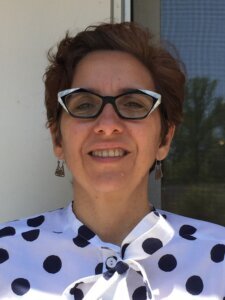Lessons from the pandemic could help keep other disruptive ailments such as the flu in check if best practices are embraced and implemented broadly.
That’s one of the messages of a sweeping report released this week that offers recommendations covering myriad environments and disciplines, ranging from schools and transportation to data systems and worker safety.
The goal of “Getting to and Sustaining the Next Normal: A Roadmap to Living with COVID,” according to one of the report’s authors, is to provide informed prevention strategies free from the speed and pressured intensity of responses that an evolving pandemic demanded.
“Basically what this framework is — it kind of takes the guesswork out of the response,” said Jelena Srebric, a professor of mechanical engineering for the University of Maryland.
Srebric was among the report’s team of 53 authors and contributors, who included advisers to the Biden administration on COVID-19 policies as well as former officials from both Republican and Democratic administrations.

The report offers guidance for when it will be safe to return to pre-pandemic routines and details what needs to be done to reduce risks for potential biosecurity threats.
Among the recommendations is that society shift its focus from COVID-19 to major respiratory viral illness such as respiratory syncytial virus (RSV) and the flu.
“In this country, on a bad year we lose 60,000 people to influenza. This is a known factor,” Srebric said. “Even beyond the deaths, you have a loss of productivity, you have children out of school, parents out for sick children, and teachers sick all the time throughout the flu season.”
Best practices related to preventing COVID-19 spread can translate elsewhere.
“You will have a lighter flu season, you will have less rhinovirus, you will have less RSV, it would make life better than pre-pandemic, if we really implement all of this,” she said.
What can the average person do? Vote.
“Vote for candidates and local school boards that care about indoor air quality for yourself, your company, your children,” Srebric said. “That will make your life better, make your community more resilient in the future. Because, again, influenza, RSV, COVID are basically exploiting an existing weakness in the system.”
Srebric said elected representatives who are willing to embrace the report’s recommendations and work to fund changes will help create more-resilient and more-prosperous communities.
Noting that underprivileged communities took the brunt of the pandemic, Srebric said America has some soul searching to do — “soul searching and financial responses to the needs of those communities in order to project environmental justice within our society,” she said.
“All of this is solvable right now based on our understanding,” Srebric said.
“There is need for some political will that I can say clearly it exists now. And then there is financial need to dedicate resources and also put them where they are most needed, because the virus exploits the weakest link in the chain.”
- Sign up for WTOP alerts
- Latest coronavirus test results in DC, Maryland and Virginia
- Latest vaccination numbers in DC, Maryland and Virginia
Looking for more information? D.C., Maryland and Virginia are each releasing more data every day. Visit their official sites here: Virginia | Maryland | D.C.








